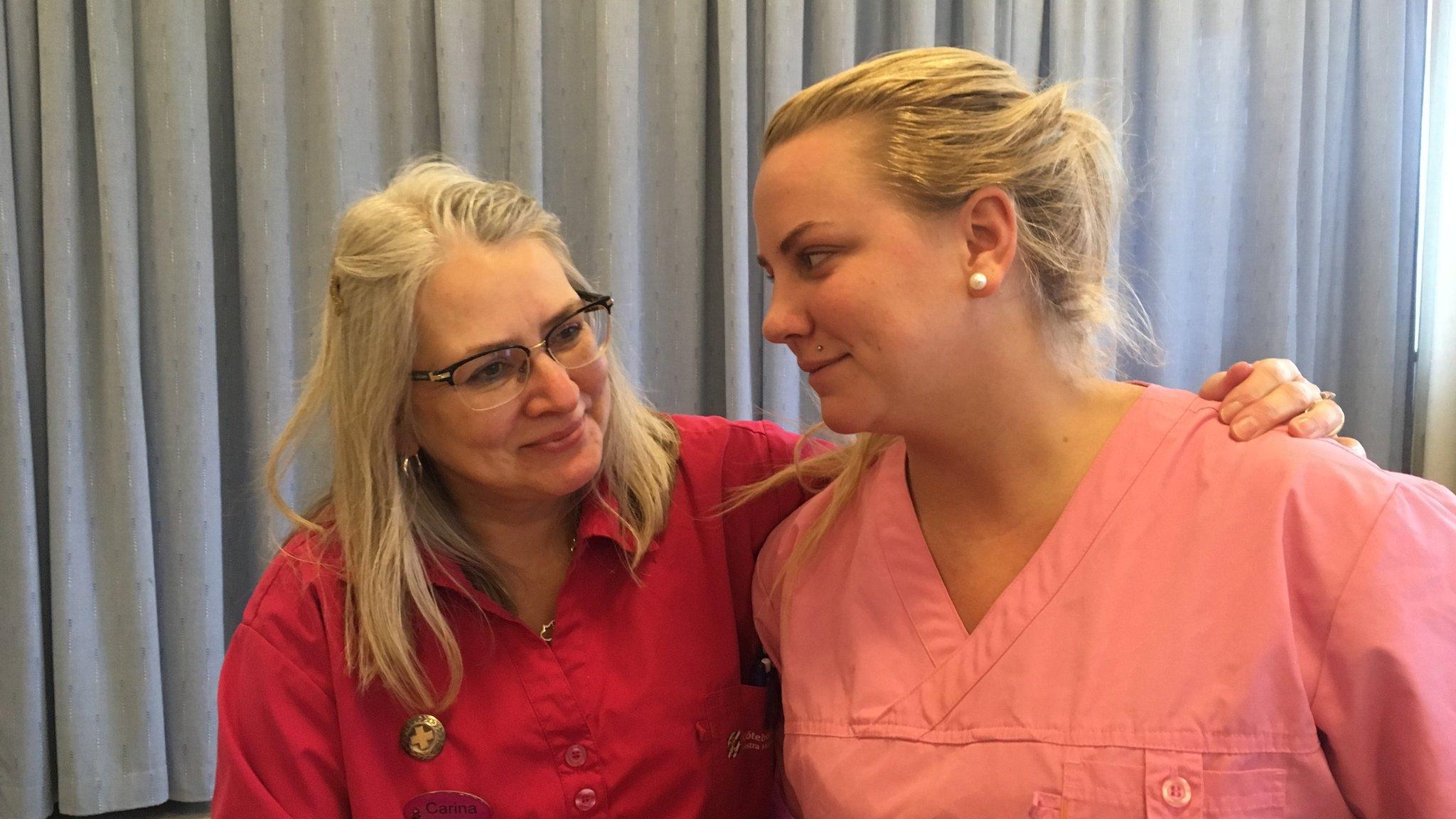‘Superheroes don’t work 90-hour weeks’
- Published
Would a four-day week boost productivity?
One in eight employees works more than 48 hours a week, analysis by the TUC, seen by the BBC's Victoria Derbyshire programme, suggests. But some companies are experimenting to see if it is possible to achieve a better work-life balance.
"Some of the superheroes of our time, they are the guys who say, 'I work 90 hours, 100 hours, 120 hours,'" says design company director Marei Wollersberger.
"People read those figures and they say, 'That's what's going to make me successful, I'm going to do the same,'... but that's not true."
Staff at her company, Normally Design, in London, work a four-day week but are paid as if they were doing the traditional five days. The days remain eight-hours long.
She says it's key to the company's success - they can be just as profitable in fewer hours, as employees work more efficiently.
In fact, working outside of business hours is not seen as a positive - managers check if there is anything wrong if it happens.

Staff at Normally Design are encouraged not to reply to emails on the fifth day
Other companies have found it difficult to meet clients' needs after moving to Swedish-style six-hour days.
But Normally Design employee Basil Safwat says the shorter weeks do not mean cramming five days of work into four and he has had to work longer hours only a couple of times in two years at the company
"There's a social encouragement to make sure you use that fifth day for yourself and not to do work," he says.
"You're not going to get Brownie points for replying to emails on the fifth day."
Ms Wollersberger says: "We've seen people wait for their whole life for the big moment when they retire and then have the luxury to do all of the things you really want to do and fulfil your dreams.
"But we've seen in a few cases that never happens as you get ill or you're older by then.
"Maybe we can just flip that round. Maybe we can take that time and move it forward and give it back to ourselves and our employees."
Mental health
Office for National Statistics labour market data analysed by the TUC found 3,337,000 employees were now working more than 48 hours a week, a rise of 250,000 since 2001.
Mental health charity Mind said poor work-life balance could lead to poor mental health in the workplace, which costs the UK economy up to £100bn per year.

Gemma Godfrey says the UK faces a puzzle over its productivity
Stress can leave workers unable to concentrate and less motivated.
Gemma Godfrey, chief executive of investment management company Moola, says: "Workers in Germany, for example, could actually stop working on a Thursday and yet still produce more than we do.
"So, therefore, greater and longer working hours doesn't necessarily mean that we're more productive, especially when it negatively impacts our health and our ability to do our job."
But, she says, the solution involves caring for employees' overall wellbeing, not simply cutting hours.
She says: "How are we looking after them? Are we also looking at lifestyle benefits, harnessing modern technology to be able to offer greater flexibility as well as making sure we still deliver?
"That's what's going to drive profits and the economy."
Retention rates

Staff at Pursuit Marketing have worked a four-day week since 2016
The 100 staff at Pursuit Marketing, in Glasgow, have worked a four-day week since a successful trial in 2016.
It says productivity increased initially by about 38%, settling to about 30% over the past year, with turnover rising from £2.2m to £5m.
Operations director Lorraine Gray says other companies choose to work with Pursuit Marketing because of the way it treats staff.
"The culture in the workplace drives better results, better performance, a happier workforce. So, our retention rates are really high. We can attract the best talent," she says.
"When our staff are in the office, they're far more productive. They're focused on what they need to do. And they want to enjoy that three-day weekend every weekend and not be worried about work."
Watch the BBC's Victoria Derbyshire programme on weekdays between 09:00 and 11:00 on BBC Two and the BBC News channel.
- Published17 January 2018

- Published16 January 2017

- Published8 February 2017

- Published29 April 2016

- Published28 December 2016
